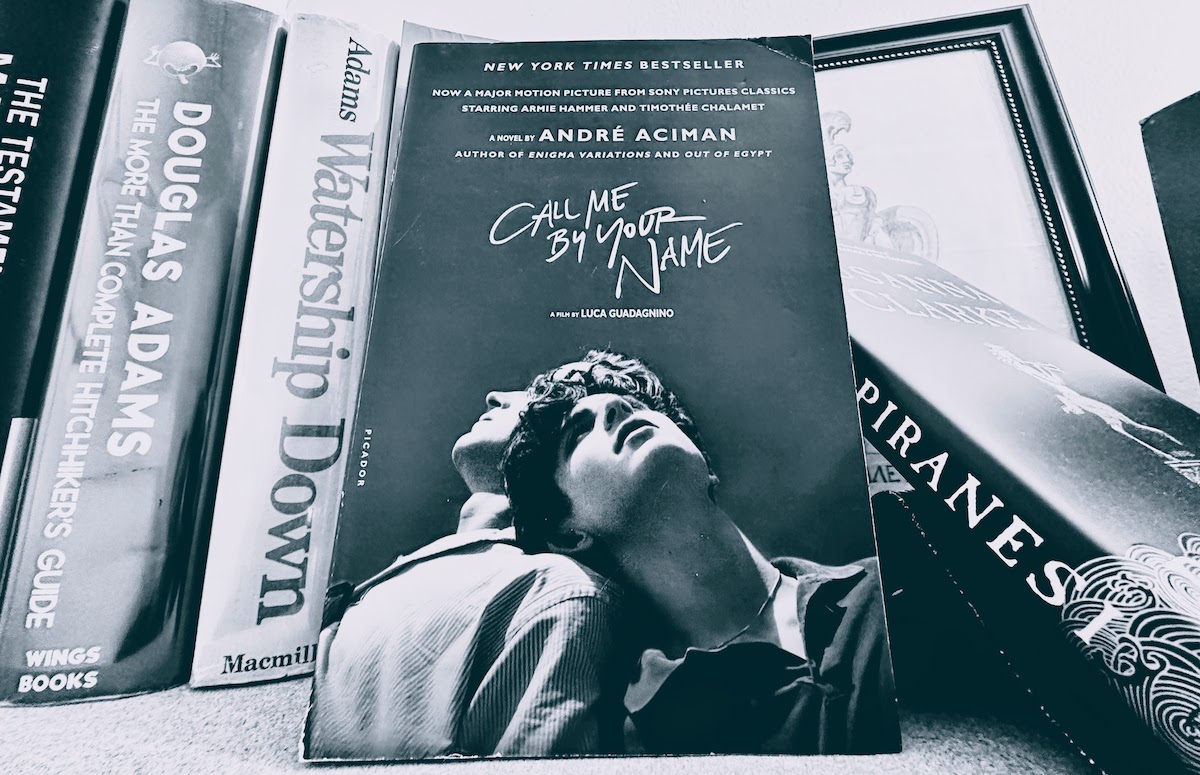Call Me By Your Name Review

Warning: spoilers
When I was about ten pages into Call Me By Your Name by André Aciman, I thought this would be a book I couldn’t finish. The book’s narrator is its main character, a seventeen year old boy named Elio who lives with his parents in Italy. He is intelligent, shy, studious, and has a raging hormone-driven desire for Oliver, a twenty-four-year-old American houseguest of his parents. But Elio is a brat and seems to sabotage himself with every step along the way.
Elio is pretentious and doesn’t hide it. He craves someone to share his book-gained trivia with and sometimes gets it when Oliver occasionally reciprocates in an almost nonchalant manner. You get the sense that he finally met someone who understands him, though when Elio tries to show his affections, he gets the cold shoulder.
All this time, you’re acutely aware that Elio is only seventeen and may not have the best arrows in his quiver. His indirect methods rely on Oliver to understand his clumsy signals and engage. During this part of the book, I’d feel like yelling through the pages at Elio to do something – anything. The narrator-version of Elio reflects this story with a teenager-like worldview, which seems strange because we eventually learn he is an adult man reflecting on his experiences in the 1980s. Maybe narrator-Elio is just recounting his old mindset? Maybe, but I don’t think so.
This kind of will-they-won’t-they continues for about half the book when they finally do. Oliver felt the same way about Elio and was just shy. Elio had mistaken his shyness for coldness and reacted poorly along the way, as a teenager would. Once they hook up, Elio seems to change. The narration focuses less on his pretentious aspects and more on his real human experience of being raptured in a passionate relationship. Everything seems to be going great, but these things can’t last.
In Oliver’s final days in Italy, he and Elio go on a trip to Rome, partially sponsored by Elio’s father. This trip serves as a bookend to the entire affair, and before you know it, Oliver is back in the United States, where he resumes his everyday life. Oliver marries and has kids, but Elio seems to stand still and regresses into his old behavior.
The book concludes with the shared fate of most all summer romances: a promise to write or call, followed by the inevitable dissipation of the entire thing. Life goes on, and eventually, the two meet up again in Italy when Elio is in his late 30s and Oliver in his mid-40s. Oliver may have been uncomfortable being out and, therefore, married with kids (perhaps yielding to social expectations), but I don’t think it’s ever explicitly mentioned. The book ends with Elio’s desire for Oliver to reciprocate his inner craving for him, much like when he was just seventeen.
In the book’s final line is where we finally meet narrator-Elio; in an emotional state of arrested development – still living in his parents’ home, surrounded by constant reminders, and longing to return to when he was seventeen.
I didn’t think I would finish the book at first because I couldn’t get to a point where I liked Elio. Somewhere along the way, the idea that I was reading a Greek tragedy from the viewpoint of its main character clicked, and I had to finish it. I didn’t have to like him. Even at the book’s climax, when everything seemed to be going right, I knew that this had to end.
I would recommend this book if you think you could handle some graphic sexual descriptions and could contextualize them. I would not recommend this book to anyone under 25 since I believe you need more distance from your teenage years to appreciate it. I also don’t think this should be your first LGBT novel if you want to sample the genre. Some scenes in the book were a bit over the top (looking at you, hotel toilet scene), but it didn’t detract from the rest of the story in the end.
Share on
X Facebook LinkedIn Bluesky



